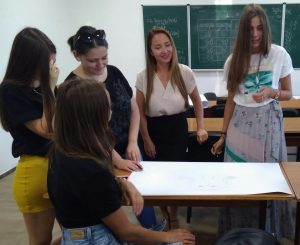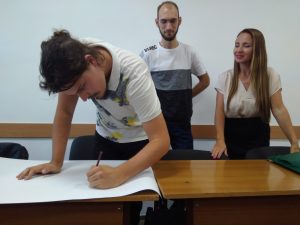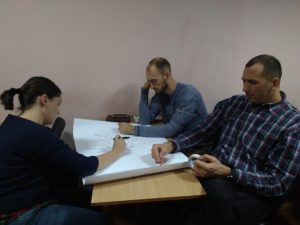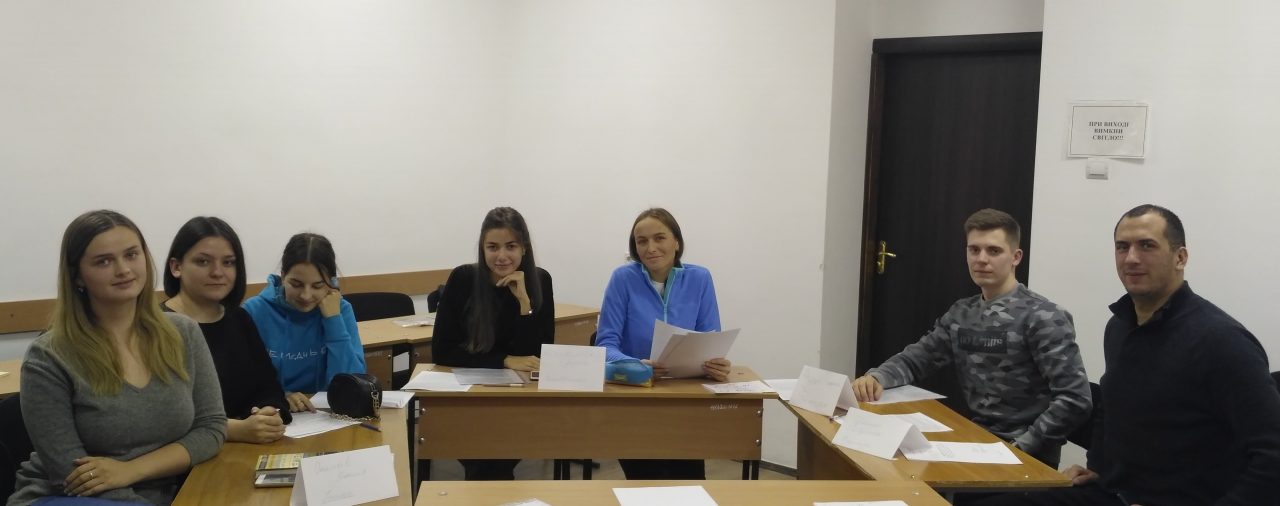The Spring semester 2019-2020 (January-March 2020) of the Jean Monnet module included teaching the course “EU Governance and Decision-making”. The course was taught to the MA students of 635 group of “Public Administration and Administration” specialty.
One of the interesting features of the course was its training orientation. The students did not have traditional lectures and seminars but studied various topics through interactive training approaches, including such topics as institutions of the EU, the decision making process in the EU, the division of power between European Union and member-countries etc.
The course was taught by Svitlana Soroka (Doctor of Sciences in Public Administration, Professor), Yuliana Palagnyuk (Doctor of Sciences in Public Administration, Professor) and Dmytro Say (PhD in Education, Associate Professor).
Students learned how the European Union’s governance system works, what powers EU bodies and institutions have, and what role the public plays in shaping EU decisions. Students studied and modeled the legislative process in the European Union, studied the differences between legislation, implementing acts (“comitology” procedure) and delegated acts, determined their place in the EU policy cycle, as well as in the hierarchy of legislative acts. During role-plays, simulation exercises and debates, students learned the decision-making procedures of the European Commission, the Council of the European Union and the European Parliament, got acquainted with the usual legislative procedure and the functioning of the “trilogy” procedure. Particular attention was paid to the study of changes in the activities of EU bodies and institutions and decision-making in connection with the adoption of the Lisbon Treaty, including the strengthening of representative democracy in the European Union.
Prof. Palagnyuk notes:
“During the classes I mainly used group interactive teaching methods. Such methods allow MA students to learn democracy first hand, to develop communication and critical thinking skills, and make informed decisions. The classes were interesting, and the students were satisfied with the unusual format”.
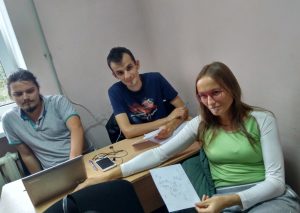
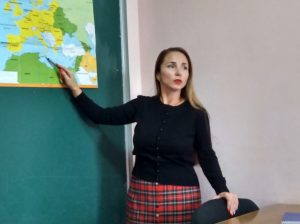
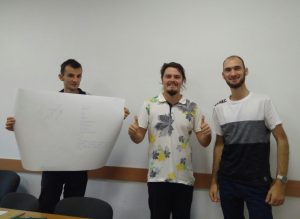
The professors, who taught the course, used various interactive teaching methods: brainstorming, role-playing games, group discussion methods, “draw and write” method, story analysis, etc.
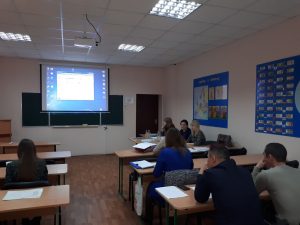
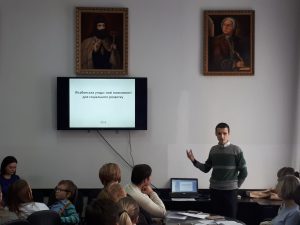
“The most intriguing part for me”, notes Prof. Say, “was the completion of the brainstorming sessions by the students, especially when they presented the results. The students devised unconventional decisions that had all chances to be implemented in future”.
At the end of the course, the students successfully passed the final exam.
